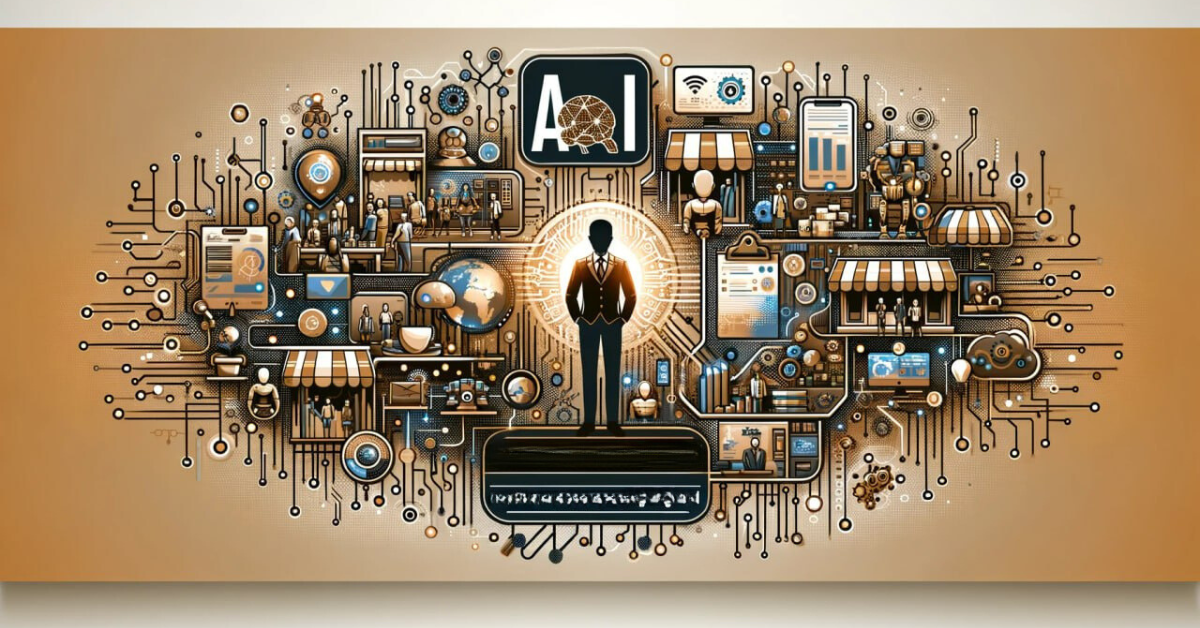
User Review
( votes)
Artificial Intelligence (AI) has become a significant factor in the growth and success of small businesses. As of 2024, its impact on these businesses is substantial, with a majority reporting enhanced success due to AI integration. AI offers small businesses various advantages, such as improved operational efficiency, task automation, and valuable insights for decision-making. By utilizing AI, small businesses can streamline their operations, reduce costs, and increase productivity, thereby gaining a competitive edge in their respective markets.
AI is revolutionizing everyday business operations, particularly in areas like data analysis and customer support. For instance, AI-powered chatbots can handle customer inquiries efficiently, using natural language processing to interact and respond accurately. Additionally, AI analytics tools can process large datasets, helping businesses make data-driven decisions and understand customer preferences and behavior. This not only aids in tailoring products and marketing strategies but also helps in forecasting demand and optimizing supply chain management.
However, it’s crucial to balance AI technologies with human interaction. Although AI can automate various processes, the human element remains vital in building trust, understanding complex customer needs, and providing empathy. Therefore, small businesses should combine AI technologies with a strong human presence, like using AI-powered chatbots for initial customer interaction and human representatives for more personalized inquiries.
Key AI Technologies Benefiting Small Businesses

Machine Learning (ML) is like a smart assistant for computer programs, making them better at predicting things without being told exactly what to do. It’s part of Artificial Intelligence (AI) and is super handy for small businesses. Imagine it helps predict what customers might like or figure out new trends. For example, a little online store can use ML to understand what customers prefer, making shopping more fun. It’s like having a tech-savvy friend who helps you stay ahead of the game by learning from what happened before. Cool, right?
Natural Language Processing (NLP) is like the language superpower for machines. It helps them understand and make sense of what humans are saying or writing. Think of it as the tech magic behind chatbots and virtual assistants. For small businesses, that means better customer service and engagement. These smart tools can chat with customers, answer questions, and make interactions smoother. It’s like having a language wizard in the digital world, making communication easier and more friendly for businesses and customers alike.
Data Analytics: Analytics, powered by AI, can sift through heaps of data, uncovering hidden trends and useful insights. This helps businesses make smart decisions based on the facts. Imagine it as a digital detective that sorts through all the information to reveal the important clues. For small businesses, this means having a trustworthy partner that guides them in making wise choices, thanks to the power of data.
Robotic Process Automation (RPA) is a digital helper that uses AI to take care of boring and repetitive tasks. Think of it as a smart assistant that handles the routine stuff, freeing up time for small business employees to do more important and strategic things. It’s like having a reliable sidekick who does the routine work, so the team can concentrate on the exciting and meaningful parts of their job.
Predictive Analytics, powered by AI, is like a crystal ball for small businesses. It looks at past and present data to predict what might happen in the future—whether it’s trends, customer behavior, or market changes. It’s like having a savvy fortune teller who uses data to give small businesses a glimpse into what’s coming. This helps them prepare and make smart decisions based on a sneak peek into what might happen next.
Conclusion
The integration of Artificial Intelligence (AI) has undoubtedly propelled small businesses into new realms of success and efficiency. As of 2024, the impact is palpable, with a majority of small businesses attributing their enhanced success to the incorporation of AI technologies. The advantages are manifold, ranging from operational efficiency and task automation to insightful data-driven decision-making. Small businesses leveraging AI can streamline operations, cut costs, and boost productivity, positioning themselves competitively in their markets.
The transformative power of AI is evident in key technologies like Machine Learning (ML), Natural Language Processing (NLP), Data Analytics, Robotic Process Automation (RPA), and Predictive Analytics. These tools serve as indispensable assets, helping businesses predict customer preferences, automate routine tasks, unravel hidden trends, and make informed decisions about the future.
While AI revolutionizes everyday business operations, it is vital to maintain a balance with human interaction. Despite the automation capabilities of AI, the human touch remains essential for building trust, understanding complex customer needs, and providing empathy. Small businesses can strike this balance by combining AI technologies with a strong human presence, allowing AI-powered tools to handle routine tasks and initial interactions while human representatives take on more personalized inquiries.







